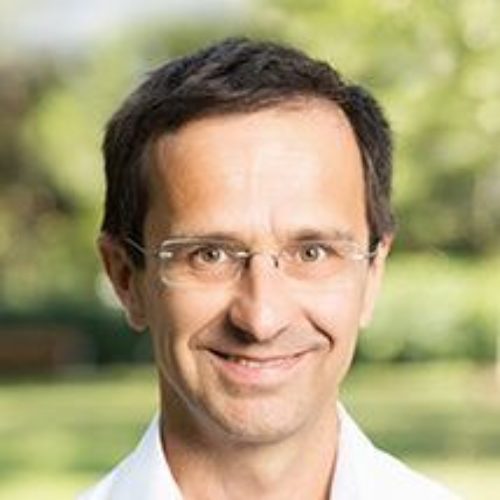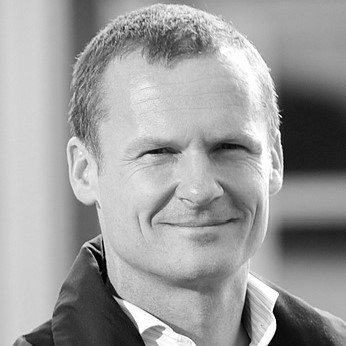Debate on The Contested Provisioning of Care and Housing
The spatiality of Polanyi’s economic principles – implications for a foundational approach
15th of September, 2022

Andreas Novy
The foundational approach is probably one of the most interesting conceptual innovations in economics in the last years (The Foundational Economy Collective 2018). Its key argument is that the economy consists of different zones and must not be reduced to one big market: retailing is not constructing; loaning is not caring. Following Fernand Braudel (1981), different economic zones function according to different logics: caring is a long-term, often place-based relation, working at the stock exchange aims at exploiting short-term financial dynamics, often in global markets. Therefore, foundational activities that take care of everyday needs have to be distinguished from other economic activities, especially the buying and selling of tradeable goods. Foundational activities are the infrastructure of everyday life, necessary for routine everyday activities from eating to housing and, therefore, need to be provided regularly and for all. They cover the core economy of non-monetary work as well as material and social infrastructures for energy, water, health and education. Other economic activities are in general world-market oriented, producing comfort goods and luxuries that characterize contemporary capitalist societies: from laptops to long-distance travelling. Furthermore, the world-market oriented economy produces essential intermediate inputs for the foundational economy, like pipes, rails, machines and medical apparatuses. Both, the foundational and the world-market oriented economy are interrelated, depending on one another. However, according to the Foundational Economy Collective, as the pandemic and weather extremes like fires and droughts have shown: the foundational is the basis, the remaining zones have a supporting role. This is the revolutionary essence of the foundational approach for economic thought by inverting priorities.
Over the last years, the plausibility of such a zoning of economic activities has constantly increased, first with the pandemic and now with the gas crisis due to the war in Ukraine: certain economic activities are foundational and, therefore, more important than others: hospitals and infrastructure provisioning of water, energy and waste-collection cannot even be closed during a lockdown (Foundational Economy Collective 2020). In case of a necessary allotment of gas, the same questions are on the public and political agenda anew: Shall citizens receive gas to warm their homes or shall industry receive gas to secure jobs? The foundational economy offers a conceptualization to deal with these challenges by reminding of its core function of “organizing the livelihood” (Polanyi 1977). It puts the economy again on its foots, thereby subordinating the world-market oriented economy to economic activitites that directly guarantee the provisioning of foundational goods and services. In times of climate crisis, the hiearchy is clear: if some economic activities have to reduce resource-use or even shrink, the foundational sector remains prioritized, the consumption of luxuries, in part also the provisioning of comfort goods and services, must be constrained (Bärnthaler, Novy, and Plank 2021).
Karl Polanyi´s economic principles can enrich this contemporary attempt to reconceptualize the economy. According to his substantivist understanding of the economy, it organizes the livelihood by means of diverse institutions. He identified four main economic principles that help organizing the livelihood in a mixed economy: householding. reciprocity, market exchange and redistribution.
Householding “consists in production for one´s own use” (Polanyi 2001:51). It is organized in self sufficient units, originally the greek oikos and until today often the household. It consists in “producing and storing for the satisfaction of the wants of the members of the group”. (Polanyi 2001:56). Reciprocity, the second principle, is based on an “institutional pattern of symmetry” (Polanyi 2001:51), constituted by symmetrical social relations like kinship, community, an association or village. Key logics are mutuality, status and kinships. Key means are gifts, sometimes there are even bans on equivalency. Householding and reciprocity have been downgraded in capitalism in general, and even more in neoliberal globalization. Both tend to be based on thick place-based relations, reciprocity is sometimes accompanied by wider, even global networks, enabled by information technologies, eg. chatting via zoom with relatives. Both are decisive for parts of the foundational economy, especially those activities related to care, paid as well as unpaid. Therefore, a strengthened care economy is at the core of place-based development strategies which aim at upgrading and regenerating local infrastructures and economies.
Market exchange, the third priniciple, is based on prices and quantitative relations, like sale and purchase, renting and hiring, loaning and borrowing. Capitalist markets are based on flows and networks of money, goods and services. It has been promoted by neoliberal policies and has been the key driver of globalization. It creates global relations via the cash nexus. Neoliberal globalization, especially with its last efforts to reduce non-tariff-trade barriers like patenting, has come near to the liberal utopia of “One Big Market” of globalized production networks and financial markets, trading everything everywhere. An example is housing, which has increasingly become an asset which is traded by wealthy individuals, while for others it has remained the key infrastructure for everyday life. Evictions for some, increasing problems of affordability for many have been the incredients of an upcoming housing crisis. The excessive marketization, in housing and other economic activities, has, as predicted by Polanyi, created countermovements, increasingly reactionary ones, that have led to a deep, probably final crisis of neoliberal globalization – defined as market-based globalization dominated by the West. The arising geopolitical conflict, especially the on between the West and China, will not be resolved quickly. Therefore, markets will be even more politicized, territories will again gain in importance.
Redistribution, the fourth principle, requires a center with adequate infrastructures to redistribute goods and services in a socially just way. Its means are storage, taxation and law. It requires political control, including the control over a certain territory: „And the larger the territory and the more varied the produce, the more will redistribution result in an effective division of labor, since it must help to link up geographically differentiated groups of producers” (Polanyi 2001:51). Therefore, a “hollowing out of the nation state” that is not accompanied by reterritorializations at other levels that take over redistributive tasks from the nation state (eg. municipal or EU) will lead to a declining capacity of policy makers to redistribute.
Redistribution, however, is a form of regulation that is necessary to impose a new hierarchy on economic activities, favouring the provisioning of foundational goods, services and infrastructures. Indeed, in the aftermath of the pandemic and due to accelerating climate crisis, there are increasing pleas for renewed redistributive policies not only to sustain social cohesion, but also to curtail CO2-emission enhancing overconsumption. If policy makers want to design economies that satisfy needs without transgressing planetary boundaries, planning is needed for restricting and embedding markets as well as for territory-based strategies of redistribution. Thereby, a sustainable and inclusive forms of reterritorialization can overcome neoliberal globalisation. Such strategies have to mobilize expert knowledge as well as fostering civic participation. They are alternatives to chaotic deglobalization due to geopolitical struggles (Novy 2022). On the one hand, they foster regionalisation as a form of territorialisation, that means a bounded policy space. For long, the EU as the dominant european integration project has promoted a market-based form of regionalization which has mainly reduced market barriers. Such a regionalization is very different from the one that Polanyi envisioned. A regionalization in line with Polanyi is a form of selective economic deglobalization that aims at strenghtening the foundational economy, centered on sustainability, inclusion and participation. It must not be conflated with autarky. The main difference to current EU integration would be that the EU-territory would have a clear economic border which creates an internal economy ruled not only by market logic. Capital control and border ajustment taxes would be prerequisites for enlarging the internal economic zones dominated by householding, reciprocity and redistribution. On the other hand, it is a form of multi-level transformation that acknowledges the necessity of policies at multiple levels, from municipal provision of infrastructures, to national regulations of rent and eco-social tax systems to European greening of the internal market and global “traffic rules” to limit the power of transnational corporations and financial markets. Therefore, it combines strengthening the foundational economy with planetary co-existence and the protection of global commons, like peace and the climate (Eder and Novy 2021). Such multi-level transformation strategies remain the most effective and feasible alternative to a world in inimical confrontation, be it economic or military.
References
Bärnthaler, Richard, Andreas Novy, and Leonhard Plank. 2021. ‘The Foundational Economy as a Cornerstone for a Social–Ecological Transformation’. Sustainability 13(18). doi: 10.3390/su131810460.
Braudel, Fernand. 1981. The Structures of Everyday Life. Civilization and Capitalism. New York: Harper & Row.
Eder, Julia, and Andreas Novy. 2021. Beyond Globalization and Deglobalization – Where to Start? A Polanyian Multi-Level Development Strategy to Provide a Good Life for All within Planetary Boundaries. Vienna: IKPS.
Foundational Economy Collective. 2020. ‘What Comes after the Pandemic? A Ten-Point Platform for Foundational Renewal’.
Novy, Andreas. 2022. ‘The Political Trilemma of Contemporary Social-Ecological Transformation – Lessons from Karl Polanyi’s The Great Transformation’. Globalizations 19(1):59–80. doi: 10.1080/14747731.2020.1850073.
Polanyi, Karl. 1977. The Livelihood of Man. New York: Academic Press.
Polanyi, Karl. 2001. The Great Transformation. The Political and Economic Origins of Our Times. Boston: Beacon Press.
The Foundational Economy Collective. 2018. Foundational Economy. The Infrastructure of Everyday Life. Manchester: Manchester University Press.
Andreas Novy
Andreas Novy is a socioeconomist who has worked and published widely in the field of urban development, international political economy, social innovation and social-ecological transformation. He is associate professor and head of the Institute for Multi-Level Governance and Development at the Department of Socioeconomics at WU Vienna. In 2019 he received, together with Brigitte Aulenbacher, Richard Bärnthaler and Veronika Heimerl, the Kurt-Rothschild-Award for his work on Karl Polanyi. He has been head of the Austrian Green Foundation, co-founder of the Viennese Paulo Freire Center and co-organizer of two Good Life for all-Congresses in Vienna. He is president and co-founder of the IKPS.
Read the other essays on the Contested Provisioning of Care and Housing here:










